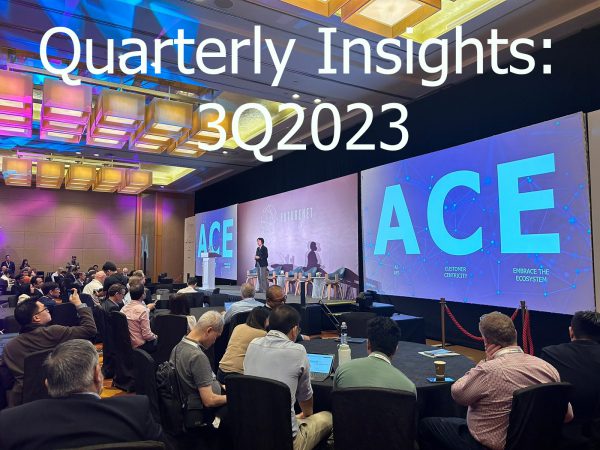
Our CEO Geok Chwee delivering her presentation ‘ACE it! – how do telcos stay ahead of the game?’ at the recent Futurenet Asia 2023 conference.
Hi all!
We are already heading down the home straight of 2023, and ChatGPT has never been as hot as it is now. The interest in artificial intelligence (AI), including generative AI (GenAI) triggered by ChatGPT is as high among telcos as other industries. BMOs such as SK Telecom, Softbank and Singtel are all embracing AI.
Currently, we do not discern a single strategy in telcos’ deployment of GenAI as they are tackling different problem statements. However, it seems to serve as a core foundation for new AI services, while improving existing telco services, digital assistants, and super apps that offer a wide range of services and opportunities. It is going to be a fine balance between creating a significantly better customer experience or generating more revenues.
If you were there at the FutureNet Asia 2023 forum where our CEO Geok Chwee unveiled an ‘ACE’ strategy for telcos to stay ahead of the game in their journey to techcos, the ‘A’ stood for leveraging not only AI, but also APIs to deliver productive outcomes. We held our very first Telco API Workgroup Meeting to map out the way forward in unlocking the potential of telco APIs to enable enterprises with new capabilities.
The ’C’ in ACE stands for Customer Centricity while the ‘E’ is for Embrace the Ecosystem to drive ecosystem growth and deliver services well across different communities and sectors. We’re currently looking for like-minded partners to unlock innovative solutions for Telco APIs and also for roaming – do check our our call for collaboration (submission deadline: 8 December) and help us with a shoutout to your industry friends who may have interesting solutions and ideas for us!
Read on for examples of our Bridge Member Operators (BMOs) capitalizing elements of the ‘ACE’ strategy, and other exciting announcements over the last quarter!
Bridge Alliance Research & Analysis Team
5G/AI/Innovation
Forging ahead on its charge to be a Global AI Company, SK Telecom unveiled its new ‘AI Pyramid Strategy’, which aims to innovate industry, society, and life centered around three key areas including AI Infrastructure, AI Transformation (AIX), AI Service. Under this new strategy, SKT expects the proportion of AI-related investment to approximately triple from 12% over the past five years (2019-2023) to 33% (2024-2028) over the next five years.
In August, SKT announced that it is investing additional US$100 million in Anthropic, an AI safety and research company based in San Francisco. They have entered into a partnership agreement to build a large language model (LLM) customized for telcos.
SKT, Deutsche Telekom, e& and Singtel have formed the Global Telco AI Alliance to create a new customer experience using AI technology. The four telcos will jointly develop the Telco AI Platform by combining their respective technologies and capabilities.
SoftBank is another BMO taking large strides in AI. Positioning GenAI as an innovative technology that accelerates its vision, SoftBank is implementing various GenAI initiatives. SoftBank Corp. launched a new company, SB Intuitions Corp, to research and develop homegrown Large Language Models (LLM) specialized for the Japanese language. The fully operational company will also develop, market and provide GenAI services.
SoftBank Group Corp. is also setting up an AI-oriented warehousing joint venture with Symbotic Inc. and buying more shares in the supply-chain-services company. SoftBank and Symbotic are investing a combined $100 million to establish the joint venture, which will be called GreenBox Systems LLC, and will buy $7.5 billion of Symbotic’s AI-powered systems for its warehouses.
Looking at new innovations, SK Telecom has announced a collaboration agreement with Joby Aviation to jointly participate in the K-UAM Grand Challenge. The two companies will combine their expertise and resources to undertake flight testing that is designed to support the development of the Urban Air Mobility sector in Korea. K-UAM Grand Challenge is a large-scale demonstration program launched by the Korean Ministry of Land, Infrastructure and Transport (MOLIT) to test the safety and suitability of UAM in an urban environment and to support the commercialization of UAM by 2025.
Over in Thailand, ongoing collaboration between AIS 5G and PTT Group since 2018 has seen the deployment of 5G and platforms to build digital infrastructure, in particular in the Eastern Economic Corridor of Innovation (EECi) in Wangchan Valley. The collaboration is working closely with robotics company ARV Co., Ltd., to develop a platform of UAVs for various industrial use cases. The use of drones has now been upgraded to a 5G AI Autonomous Drone System (Horrus), which is the first drone system to be developed by Thai engineers.
Another BMO looking at the sustainable transport sector is Globe, whose 917Ventures Inc., Ayala Corporation, and Gogoro have formalized their partnership to establish a JV, Gogoro Philippines. It aims to revolutionize the Philippine transportation landscape and deliver clean and sustainable mobility utilizing Gogoro’s trailblazing electric two-wheel vehicles and open battery swap network.
In 5G news, there is increasing RedCap interest. 5G RedCap is a new technology designed for IoT applications, such as industrial sensors, smart wearables, video surveillance; its benefits include reduced device chipset cost, lower complexity and lower power consumption. AIS and Huawei completed the first 5G RedCap commercial test in Thailand on the 700MHz and 2600MHz commercial networks, an important milestone for RedCap commercialization.
Finally in July, Maxis Bhd said it will sign an agreement to access Malaysia’s state-run 5G network, the last major carrier to get on board a contentious rollout. Maxis said it was ready to do so as it was in it best interests and there were no other 5G options.
In Singapore, Singtel and the Civil Aviation Authority of Singapore (CAAS) have launched a 5G Aviation Testbed at Singapore Changi Airport Terminal 3’s airside. This enables companies to use 5G to trial and adopt new solutions, which would help raise productivity for critical functions including aircraft ground operations, ground handling and line maintenance services.
SoftBank and OneWeb announced that they have signed a Distribution Partnership Agreement to deliver satellite communication services across Japan. OneWeb’s LEO satellite-based services will provide fast communication services with low latency, as LEO satellites are located close to the earth. Also in satellite news, Optus, in collaboration with SpaceX, which manufactures and launches some of the world’s most advanced rockets and spacecraft, have announced an agreement to deliver mobile connectivity using SpaceX’s Starlink satellite constellation. Together, Optus and SpaceX plan to cover 100% of Australia.
This seems a tad early while we’re still looking at 5G ROI, but the cliché goes that early bird always catches the worm. SKT has published a 6G White Paper on its vision for future networks. It’s a worthy read.
IoT/M2M
We are starting to see more IoT deployments that harness the power of GenAI. By analysing vast amounts of IoT device data, AI and machine-learning algorithms will fuel intelligent IoT systems that evolve based on their environment.
eSIM technology is becoming synonymous with IoT devices. eSIMs are enhancing existing IoT SIM management capabilities and more operators are future-proofing themselves by introducing global IoT eSIM platforms. Among the many business benefits, eSIMs will reduce complexities for global IoT SIM card deployments where organizations traditionally relied on stocking, procuring, and managing different SIM card stock-keeping units (SKUs) based on the regions in which they operate.
Smart cities and smart mobility are becoming more prevalent. By investing in IoT technology, smart cities aim to improve efficiency, reduce costs, and enhance the quality of life, while smart mobility aim to optimise and automate our roadways, reduce costs and the carbon footprint.
Stc Group has announced that its JV with the Public Investment Fund iot squared is to acquire 100% of the IoT solutions provider Machinestalk. The acquisition will accelerate iot squared’s growth and solidify its position as a leading regional IoT solutions provider, unlocking more value through Machinestalk’s strong field services capabilities.
In Indonesia, Telkomsel has deployed a next-generation IoT Connectivity Management Platform with Amdocs, enabling the telco to expand its range of IoT offerings for both consumer and enterprise customers. Under the project, Amdocs provided system integration services to implement MAVOCO’s IoT Connectivity Management Platform.
Did you catch the IoT podcast featuring Bridge Alliance and Singtel and also our interview with our IoT partner Aeris Communications? They are good primers on the IoT solutions that Bridge Alliance and our BMOs could offer to enterprise customers.
Enterprise
Given that global revenues from consumer connectivity services are projected to grow only 1% annually through 2026, according to Bain & Company analysis, telcos are increasingly looking to their enterprise businesses for growth. On the enterprise side, quite a few announcements were made by our BMOs as they keep chasing new opportunities, even abroad.
Singtel is monetising its data centre business: Singtel and KKR reached an agreement under which a fund managed by KKR will commit S$1.1 billion for 20% stake in Singtel’s regional data centre business. The collaboration enables Singtel to tap on KKR’s expertise investing in data centres.
Singtel also launched the Cyber Elevate Programme, a one-stop training and cyber incident management programme, aimed at improving cyber security of SMEs. It is the first-of-its-kind in Singapore and is specifically designed to equip SMEs with the necessary capabilities and skillsets to prepare, detect, respond, and recover from cyber attacks at affordable rates. In another cybersecurity move, Singtel announced a strategic partnership to offer Zscaler’s security solutions in Asia, a first for the region. Enterprises regardless of business size will now have seamless access to Zscaler’s Zero Trust Exchange™, a cloud-based platform through Singtel’s Managed Security Service Edge (MSSE) suite of services.
Singtel continues in its push to offer financial services in its portfolio. GX Bank Berhad (GXBank) has obtained approval to commence operations in Malaysia. GXBank is a subsidiary of GXS Bank – the digital bank joint venture between Singtel, Grab as well as a consortium of Malaysian investors including Kuok Group. The bank is looking to leverage technology and innovation to serve the needs of unserved and underserved individuals, as well as micro and small, medium enterprises.
In the Philippines, Globe signed an MOU with NCS, the Singtel Group’s technology services arm to strengthen its enterprise architecture and ICT capabilities. Meanwhile, Globe entered into a multi-year managed services engagement with Amdocs. It selected Amdocs Data Intelligence Managed Services to manage its data lake platform, which will enable Globe to deliver improved customer and employee experience while driving business growth, operational efficiencies and product innovation.
Stc’s IT services outfit solutions by stc announced its participation in a global investment round in the American company nile’ with a value of US$175 million. Nile was able through its team and expertise to change the concepts of providing secure enterprise network services NaaS and gained customer trust in record time.
In line with its ‘Beyond Carrier’ growth strategy, SoftBank has formed a strategic alliance with Pocketalk Corporation, a provider of translation solutions to market the latter to enterprise customers in Japan and global markets. Pocketalk will join SoftBank’s business partner program “ONE SHIP” and work with SoftBank’s 3,300 enterprise sales personnel to expand the sales of “Pocketalk” solutions to SoftBank’s corporate customers.
Cloud
As we approach 2024, we can expect more edge computing integration. Edge computing is becoming increasingly important as it brings computation closer to the data source, reducing latency and improving real-time processing. In 2024, we can expect a closer integration between cloud and edge computing, allowing for more efficient data processing and analysis. We can also expect cloud providers to further enhance their services to accommodate the growing demand for AI and ML applications.
Globe Business announced a strategic partnership with Alibaba Cloud to provide enterprises in the Philippines with access to their Cloud technology. Alibaba Cloud is one of the biggest public Cloud service providers in the region with cloud services including elastic computing, database management, storage, networking, security, and application services at full capacity, as well as data analytics, machine learning and IoT services.
Center3 by stc, a regional data center and data services provider, has announced a strategic collaboration with Oracle to provide hosting and data services for the planned Oracle Cloud Riyadh Region as well as support the expansion of the existing Oracle Cloud Jeddah Region. The planned Oracle Cloud Riyadh Region is part of a US $1.5 billion investment from Oracle to expand cloud infrastructure capabilities in the Kingdom.
Edge/MEC
Although there were just a handful of number of MEC announcements this quarter, the market remains promising. the global MEC market size grew from $2.6 billion in 2022 to $4.03 billion in 2023 at a growth of 55.0%, and is expected to grow to $28.43 billion in 2027, poised to grow at a CAGR of 62.9% during the forecast period. The market is anticipated to grow as IoT devices are used across sectors, including manufacturing, IT and telecom, data centers, transportation, and logistics.
Among the interesting announcements, SK Telecom inked an MoU with Telekom Malaysia Bhd (TM) to jointly develop the MEC business in Malaysia, paving the way for the business to be pioneered and provisioned in the country.
Singtel is collaborating with SAP to develop an end-to-end Intelligent Edge Aggregator (IEA) solution that will add greater cloud functionality and computing capabilities to its network architecture to help boost enterprise operations. Developed on Singtel’s Paragon platform and supported by its 5G networks and multi-edge computing solutions, the IEA will enable enterprise customers to quickly access and integrate SAP software with their back-end processes at the cloud server edge to gain real-time insights that will help them with decision-making on time-sensitive business requirements.
Private Networks
Even though the private networks market remains at a relatively early stage of development, it is already increasingly competitive. Many different types of players will compete to provide private networks, including telcos, technology companies, neutral host providers, SIs, and OEMs. It is seen as a growth market at a time when prospects for other product lines are poor.
There have been a number of private networks announcements this quarter, around Pharma, mining, healthcare, manufacturing, entertainment, and logistics. Among our BMOs, Globe, in partnership with Hewlett Packard Enterprise (HPE), successfully showcased the first-ever Private 5G SA Network in the Philippines. Built with technology from Athonet, a HPE company, the network delivers cellular connectivity to enterprises and organizations as an alternative or complementary solution to Wi-Fi and public mobile technologies.
Web3/Gaming/Metaverse
In terms of Web3 trends, we start to see the impact of GenAI which has the potential to revolutionize web interactions. Through AI & ML development services, this form of AI can generate personalized and captivating content based on user data, interests, and preferences. Its impact extends to various domains, including music, digital art, and writing.
The BMOs remain active, especially SKT and AIS. SK Telecom signed a strategic agreement with Polygon Labs, an international software development company that builds blockchain scaling infrastructure, to build SKT’s Web3 ecosystem. SKT also inked a partnership with Ozys, a blockchain technology company, to expand on Web3.
In the Philippines, Globe is further developing its partnership with MetaverseGo. Globe has strategically integrated its core offerings like Rewards, datapacks and payment solutions, into its partnership with MetaverseGo. This approach allows the seamless fusion of traditional telco services with innovative Web3 concepts. Globe users gain free access to the MetaverseGo all-in-one Web3 mobile platform via Globe datapacks, encouraging engagement with Web3 games and Non-Fungible Tokens (NFTs).
In Saudi Arabia, Stc Group and the Saudi Esports Federation (SEF) announced a strategic partnership to promote the Kingdom’s goal of becoming a global hub for esports and gaming. Stc’s ‘stc play’ will be used as the main tournament platform and strategic sponsor for several SEF events.
UC/CPaaS
On the Unified Communications/Communications Platform-as-a-Service, more CPaaS providers adding AI capabilities to their engines. Users will no longer be satisfied with an ordinary CPaaS solution but will expect a more enriched communications experience through GenAI. And this experience is not limited to a value-added offering, but is set to be part of the core product portfolio.
Among our BMOs, Bharti Airtel is exploring offering its CPaaS platform outside of India to tap into the strong revenue potential of the growing business. Over the past few years, Airtel has been building its own suite of CPaaS products and looks to disrupt sectors like banking, ecommerce, travel, and shopping in India, eyeing a share of the rapidly growing market, even as the CPaaS sector in India itself is growing.
Just in August, Airtel had launched Airtel IQ Reach, a first-of-its-kind self-serve marketing communications platform, which will enable brands/ companies to drive targeted customer engagements through personalised communications. The Airtel IQ Reach portal is now live for communications via WhatsApp and will be rolled out on SMS, voice and other channels shortly. Airtel IQ is the telco’s network-embedded CPaaS.
We are delighted that our CPaaS solution has been shortlisted in two categories at this year’s World Communication Awards – The Beyond Connectivity Award and The Platform Award. This makes for an early Christmas present for our teams involved, and we wish all finalists best of luck!
Have a great end of year.



